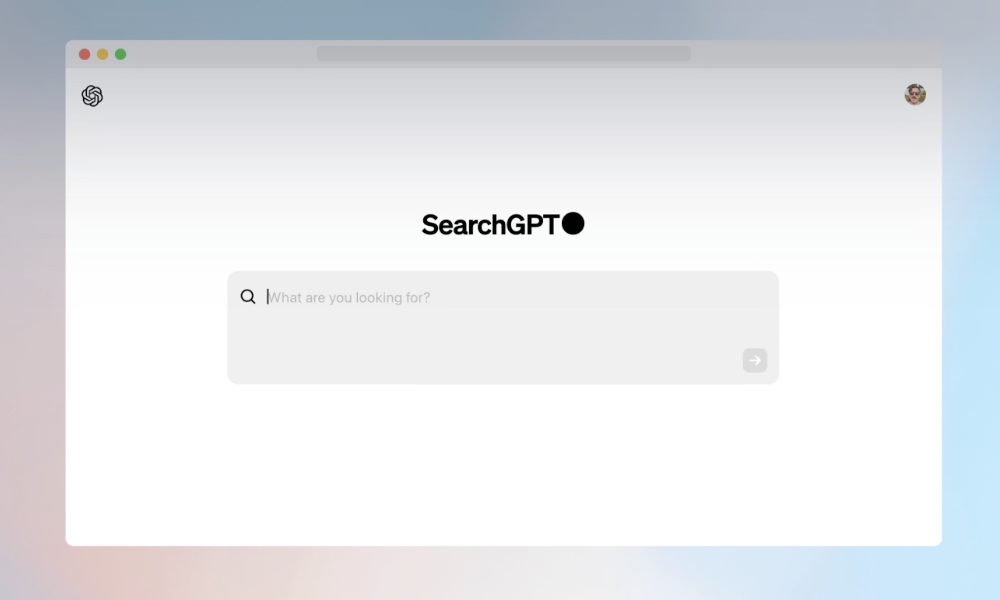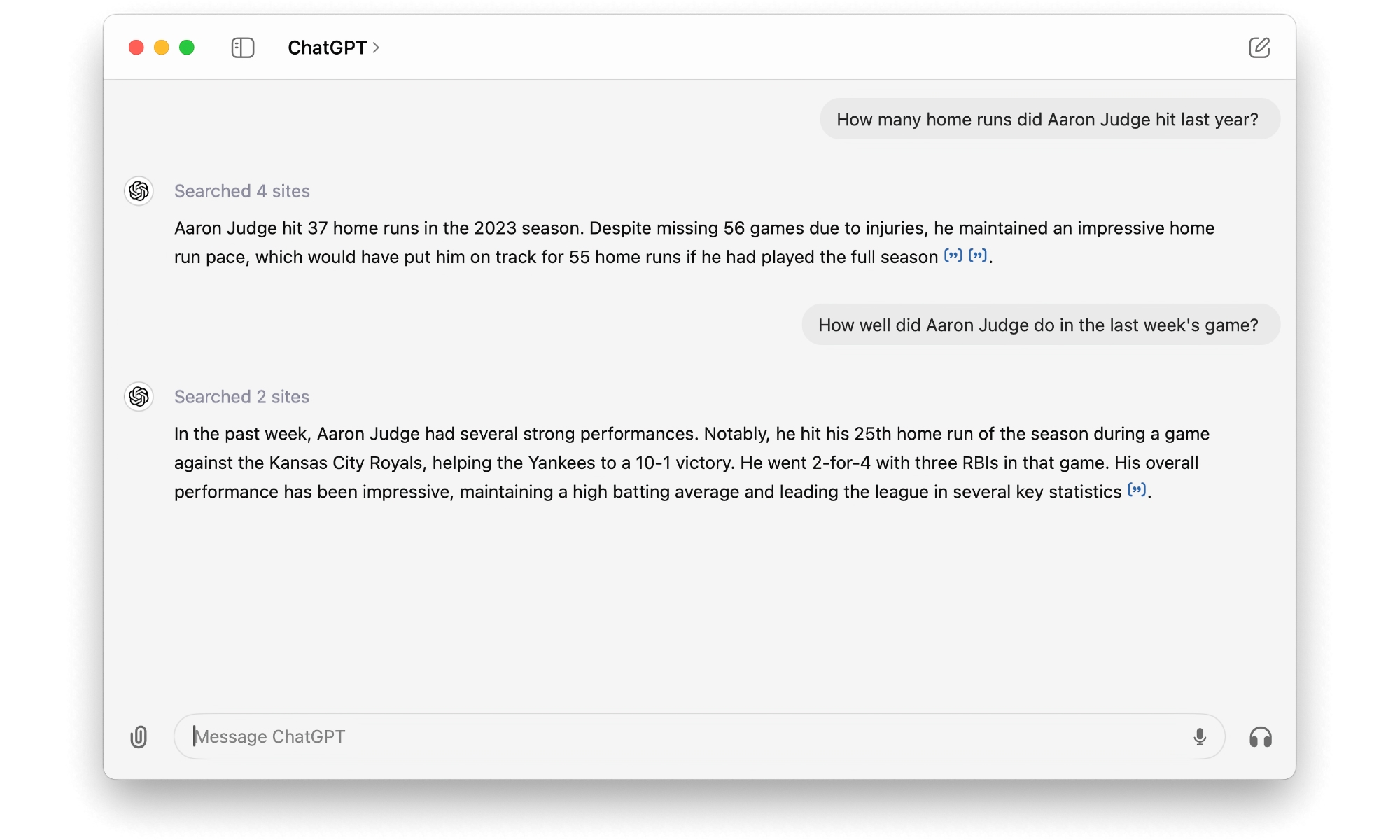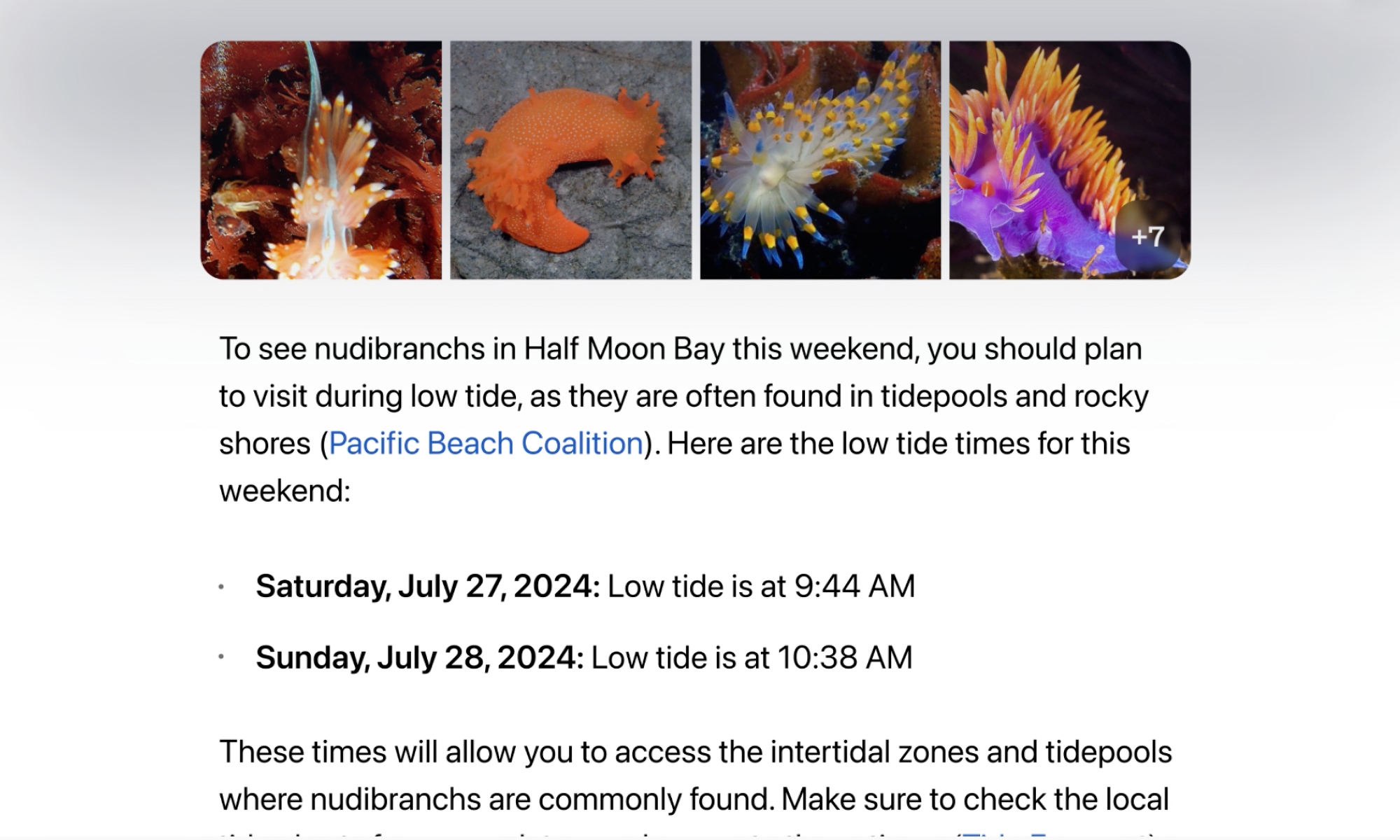OpenAI’s SearchGPT Launches Today — To a Select Few

Toggle Dark Mode
OpenAI, the company behind the ever-popular ChatGPT AI chatbot, is now entering Google’s turf with a new dedicated AI-powered search engine.
Dubbed SearchGPT, the new take on intelligent internet search is launching today in a “temporary prototype” stage, and as such it’s rolling out to only a limited audience to start with.
The SearchGPT Prototype is intended to tie the conversational chatbot features into real-time web information that will make it easier to find what you’re looking for. As things stand now, ChatGPT is *trained* on information from the web so that it can give intelligent answers to general knowledge queries, but it doesn’t always provide up-to-the-minute results.
For example, if you ask ChatGPT how many runs Aaron Judge hit last year for the New York Yankees, you’ll get an accurate answer gleaned from various sites. However, if you ask ChatGPT something like “How did Aaron Judge do in last week’s game,” you’ll get information that may sound current, but when you click through to its sources, you’ll discover it’s woefully out of date.
That’s where SearchGPT comes in. By working with a real-time search engine, the AI bot can provide more current information — “real-time information from relevant sources,” as OpenAI puts it — along with visual results and the ability to ask more natural and intuitive follow-up questions.
More significantly, the real-time nature will let you ask questions about things that are going on in the world around you, whether that’s current news, or even if a given park, restaurant, or event venue is open, or if tickets are available for a show you’d like to see tonight. That’s the dream, anyway, but OpenAI has some work to do before it gets there.
Getting answers on the web can take a lot of effort, often requiring multiple attempts to get relevant results. We believe that by enhancing the conversational capabilities of our models with real-time information from the web, finding what you’re looking for can be faster and easier.OpenAI
An OpenAI spokesperson told The Verge that it will start with 10,000 test users initially, but there’s no word on how fast the AI company plans to roll out SearchGPT beyond that. However, you should join the waitlist right away if you want to be among the first to check it out.
That’s why it’s launching SearchGPT Prototype, so people can try it out, provide feedback, and help refine it before it launches to a broader audience. However, the goal here isn’t to create a new product; rather, Open AI plans to “bring the best of this experience into ChatGPT.”
In other words, you won’t be opening a separate app or chatbot. When the dust settles, the ChatGPT we’re already using will get much smarter and be capable of returning real-time results that reflect what’s happening today instead of what ChatGPT learned last week or last month.
That’s good news for Apple fans since ChatGPT is poised to be a core element of Apple Intelligence. While the most personal parts of Apple Intelligence are powered exclusively by Apple’s own silicon — both on-device and in its secure Private Cloud Compute data centers — queries for anything that exists outside of your private sphere will be sent off to ChatGPT for processing (with your permission, of course).
So, a smarter ChatGPT ultimately means a more intelligent Siri. When you ask Siri to let you know if you’ll be able to make it to your next meeting on time or when your flight lands, that’s Apple; when you ask Siri for the best times and places to check out the seasonal cherry blossoms in Toronto, it’s likely ChatGPT will be better-equipped to answer that question.









